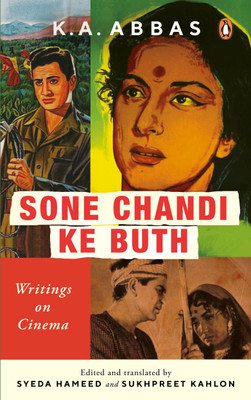Sone Chandi Ke Buth(English, Hardcover, Abbas K.A.)
Quick Overview
Product Price Comparison
K.A. Abbas gave me my first film, Saat Hindustani. I called him Mamujaan. The book is a deep, incisive look at the gold and silver world of cinema. The sheen wears off but the spirit lives on. K.A. Abbas Trust keeps Abbas Saheb's unrelenting spirit effervescent' AMITABH BACHCHAN 'An interesting read' SHABANA AZMI 'A must read for film lovers' RANDHIR KAPOOR Sone Chandi ke Buth is a collection of writings on cinema that includes the observations, thoughts and reflections of Khwaja Ahmad Abbas. Originally written in Urdu by the well-known journalist, screenwriter and film-maker, it has now been translated for the first time into English. The book is a collection of short stories, essays and articles on famous film personalities and varied aspects of the film industry. Abbas was a prolific writer who published seventy-four books in his seventy-three years, besides writing extensively on the film industry for the Bombay Chronicle newspaper. Sone Chandi Ke Buth, published a year before he passed away, was his last book-a final word on the glitz, glamour and gritty reality of the Hindi film world. It includes his candid observations on famous actors, writers and directors such as Raj Kapoor, Amitabh Bachchan, Dilip Kumar, Satyajit Ray, Meena Kumari, Balraj Sahni and V. Shantaram. A series of essay focuses on various aspects of cinema, from the changes in the film industry to the power of film stars. The book also includes short stories set in the context of the film industry, some having veiled references to actual film stars. A common thread running through them all is his emphasis on making socially relevant films rather than those that succumb to the pull of glamour and the box office. This book also presents a section of his writings as a film journalist for the Bombay Chronicle. His column, 'The Last Page', one of the longest running in Indian journalism, began in 1935, and moved to the Blitz after the Chronicle's closure, where it continued until his death in 1987. They complement the writings in Sone Chandi Ke Buth and are invaluable for cinema lovers. Abbas's matter-of-fact style and the didactic element in his prose illustrate the humanistic ideals that were at the very core of his thought. His writing, both humorous and incisive, is like a laser that pierces right to the heart of the matter.


